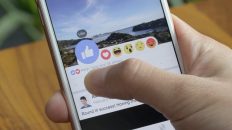 As already reported, Twitter has announced its step towards making ‘sensitive’ content selectively available to users across the world on basis of geography, and the local government’s concerns while entering countries that might harbor ‘different ideas’ about the concept of freedom of expression.
As already reported, Twitter has announced its step towards making ‘sensitive’ content selectively available to users across the world on basis of geography, and the local government’s concerns while entering countries that might harbor ‘different ideas’ about the concept of freedom of expression.
The debate sparked after the announcement reflects the tricky ethical connotations facing censorship of Internet companies, including the social networking sites. Spontaneous reactions from the world’s top publications to self-imposed blanket censorship on part of Twitter, as summed up below, highlight the heightened concerns:
Think of it as the digital equivalent of a newspaper responding to old-fashioned government censorship with a blank front page. The announcement signals the choice that a service like Twitter has to make about its own existence: Should it be more of a free-speech tool that can be used in defiance of governments, as happened during the Arab Spring protests, or a commercial venture that necessarily must obey the laws of the lands where it seeks to attract customers and eventually make money? “Thank you for the #censorship, #twitter, with love from the governments of #Syria, #Bahrain, #Iran, #Turkey, #China, #Saudi and friends,” wrote Björn Nilsson, a user in Sweden.” (The New York Times)
“Twitter, which has said it has more than 100 million active accounts around the world, is making a push to become an online-advertising giant like Google. As it expands elsewhere, the company will have to comply with local law or its employees could potentially face prosecution or other legal action.” (The Washington Post)
“The decision has been criticized by the freedom of information advocacy groups. The move comes at a time when Twitter is in the process of expanding its global business. A number of Twitter users have expressed dismay over the move, with some pointing out the adverse impact it would have on free speech, especially outside the US.” (The BBC)
“Many tweeters have accused the service of censorship and, under the hashtags #twittercensorship and #twitterblackout, are planning to protest by not tweeting on 28 January in a stand against what they see as a threat to freedom of expression and information. Others question the extent to which this system will be used and if this move by Twitter will result in a shift away from the network (The Guardian)
“Like Yahoo and Google before it — and for the same reason, becoming a global powerhouse — Twitter has confronted an inconvenient truth: Freedom of expression is sacrosanct and protected by the Constitution in the US, but in other parts of the world, not so much. It isn’t clear why Twitter chose this moment to articulate this policy, and the company isn’t saying exactly where and when it might begin censoring. It’s easy to suggest that Twitter — whose service was instrumental in the Arab uprisings last year — should never censor and instead subject their employees to arrest or just simply go dark in countries that demand it. But it’s a tough call.” (Wired.com)




